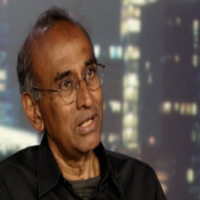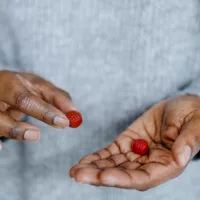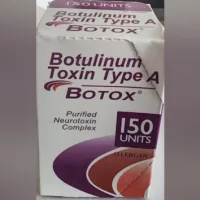 Dr. Richard Besser/ABC News(MONROVIA, Liberia) — REPORTER’S NOTEBOOK By: Dr. Richard Besser
Dr. Richard Besser/ABC News(MONROVIA, Liberia) — REPORTER’S NOTEBOOK By: Dr. Richard Besser
Matthew Lincoln died Saturday night. He was one of two patients to die at the Bong County Ebola Treatment Unit on Saturday.
When Lincoln died, I was embedded with a group of aid workers tracking down Ebola patients. We were on our way to the center with his 23-year-old wife, Garmai and their 11-month-old son, Freeman, both of whom are believed to be infected with Ebola. We picked up Garmai and Freeman in the small village of Mahwa, but instead of traveling directly to the clinic, we detoured to pick up another suspected Ebola patient. A four-hour trip stretched to six, and by the time we reached our destination, Matthew was dead.
There was no chance for his wife to say goodbye.
Bong County Ebola Treatment Unit is run by the International Medical Corps. It was built by Save the Children and is funded by USAID. It sits on top of a forested hill a couple miles from the main road on property that used to be a leper colony, according to a large sign that hangs by the road.
Eventually the facility will house 52 Ebola patients, but it opened just 13 days ago as part of the increased American support coming into Liberia to fight the outbreak. Now, it can only handle 22 patients.
Taking care of Ebola patients requires meticulous attention to detail; one small mistake and a health care worker can become infected. As a result, new centers scale up slowly, working out there systems with a small number of patients at first.
On Sunday morning, we attended Matthew’s funeral. No prayers, no remembrances, no loved ones at the grave site. There was just a small procession: the burial team, health care workers, and a small group from USAID.
A narrow trail snaked through the jungle leading from the treatment compound to the burial site. Vines hung down and tangled in our hair and roots tripped our feet as we followed the two yellow-suited members of the burial team carrying Matthew’s body in a white body bag on an orange canvas stretcher. We filmed them from the front, walking backwards, slowing their progress with the body.
“Hurry, hurry,” they said. “He’s getting heavy.”
We stepped aside to let them pass and filmed them from behind.
Seven mounds of freshly filled graves stood side-by-side, each with a little white sign bearing the carefully written name of the deceased. Stretching past these filled graves were 19 empty ones. It was a horrifying sight.
In the short time the treatment unit has been open, they’ve buried seven victims and have two more waiting to go into the ground. There were more empty graves than there were living patients being treated here for Ebola.
“We have to plan ahead,” Dr. Pranav Shetty, director of the unit explained, adding that they have a team of nine gravediggers who can dig three graves a day. “It’s important that they stay ahead of our needs.”
At this rate, within two weeks all these graves will be filled, and they will need to clear a larger area and hire another team of diggers. It’s an overwhelming feeling to see such a forecast of death, to know what is coming but to also know that — with high quality treatment — it doesn’t have to be that way.
I talk to Garmai, the newest widow, through the chicken wire that separates us in the visitors area. A ledge extends out to ensure that we stay a safe distance apart, at least 3 feet. It’s the smart thing to do but it makes it difficult to talk about illness, death, and her baby, Freeman.
“I don’t feel well. My body is cold,” she tells me. “Freeman is not good. He won’t eat. He’s very weak. They took my blood but not from Freeman.”
It is so hard to draw blood from a dehydrated infant. The medical team was trying to decide how best to do this.
Garmai’s blood will be taken to a lab on Monrovia. It will take 2-to-3 days before they know if they have Ebola, but Garmai knows the test is probably just a formality. She and her son shared a bed with Matthew.
I ask Dr. Shetty the question that has been eating at me for weeks: How can it be that all the Americans who get treated in the U.S. survive, and here in Liberia 70 percent die? He explains that they are doing the best they can with what they have.
“All diseases have a better outcome in Western countries,” he says. “Ebola is no different. The key to controlling Ebola is preventing new cases.”
What he says is true about prevention being the most critical need, but I’m haunted by the sight of those empty graves waiting to be filled. The job of saving lives is enormous and cannot be ignored. It is far too big to be handled without a massive influx of health care workers. Yet, no country has stepped in and said that this will be their mission: providing lifesaving care to Ebola patients.
How can the world accept such a preordained path to death?
Follow @ABCNewsRadio
Copyright 2014 ABC News Radio















